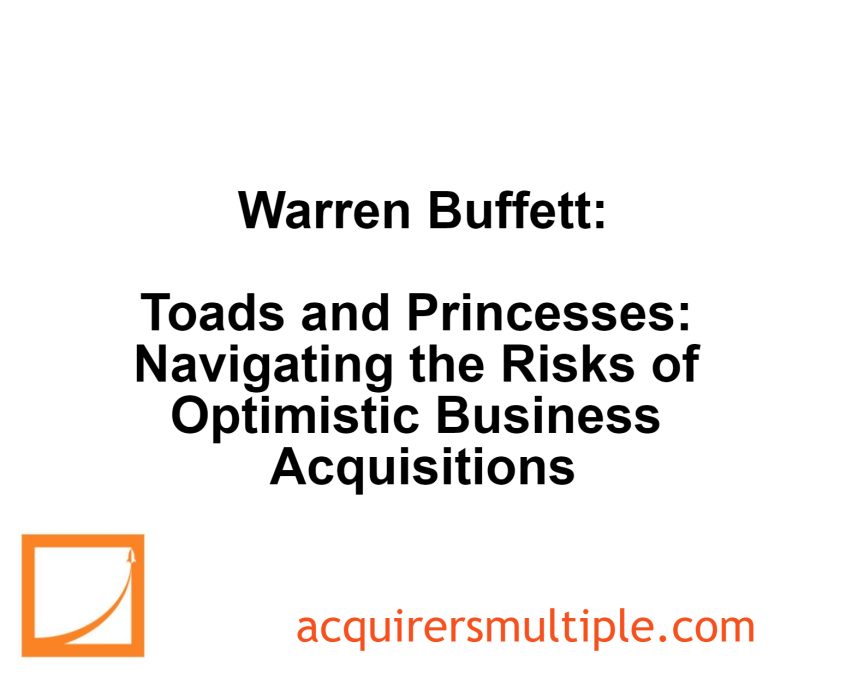In his 1981 Berkshire Hathaway Annual Letter, Warren Buffett explained why he doesn’t believe in making small commitments when it comes to total ownership or part ownership in businesses. He discusses three motivations—usually unspoken—to be, singly or in combination, the important ones in most high-premium takeovers. Here’s an excerpt from the letter:
As our history indicates, we are comfortable both with total ownership of businesses and with marketable securities representing small portions of businesses. We continually look for ways to employ large sums in each area. (But we try to avoid small commitments—“If something’s not worth doing at all, it’s not worth doing well”.) Indeed, the liquidity requirements of our insurance and trading stamp businesses mandate major investments in marketable securities.
Our acquisition decisions will be aimed at maximizing real economic benefits, not at maximizing either managerial domain or reported numbers for accounting purposes. (In the long run, managements stressing accounting appearance over economic substance usually achieve little of either.)
Regardless of the impact upon immediately reportable earnings, we would rather buy 10% of Wonderful Business T at X per share than 100% of T at 2X per share. Most corporate managers prefer just the reverse, and have no shortage of stated rationales for their behavior.
However, we suspect three motivations—usually unspoken—to be, singly or in combination, the important ones in most high-premium takeovers:
- Leaders, business or otherwise, seldom are deficient in animal spirits and often relish increased activity and challenge. At Berkshire, the corporate pulse never beats faster than when an acquisition is in prospect.
- Most organizations, business or otherwise, measure themselves, are measured by others, and compensate their managers far more by the yardstick of size than by any other yardstick. (Ask a Fortune 500 manager where his corporation stands on that famous list and, invariably, the number responded will be from the list ranked by size of sales; he may well not even know where his corporation places on the list Fortune just as faithfully compiles ranking the same 500 corporations by profitability.)
- Many managements apparently were overexposed in impressionable childhood years to the story in which the imprisoned handsome prince is released from a toad’s body by a kiss from a beautiful princess. Consequently, they are certain their managerial kiss will do wonders for the profitability of Company T(arget).
Such optimism is essential. Absent that rosy view, why else should the shareholders of Company A(cquisitor) want to own an interest in T at the 2X takeover cost rather than at the X market price they would pay if they made direct purchases on their own?
In other words, investors can always buy toads at the going price for toads. If investors instead bankroll princesses who wish to pay double for the right to kiss the toad, those kisses had better pack some real dynamite. We’ve observed many kisses but very few miracles. Nevertheless, many managerial princesses remain serenely confident about the future potency of their kisses—even after their corporate backyards are knee-deep in unresponsive toads.
You can find the entire letter here:
For all the latest news and podcasts, join our free newsletter here.
Don’t forget to check out our FREE Large Cap 1000 – Stock Screener, here at The Acquirer’s Multiple:



